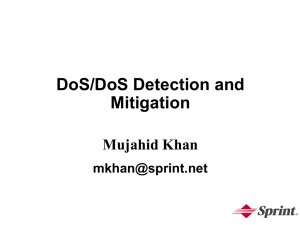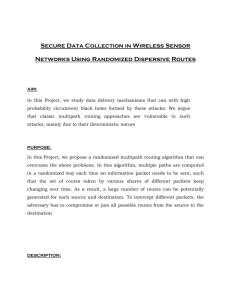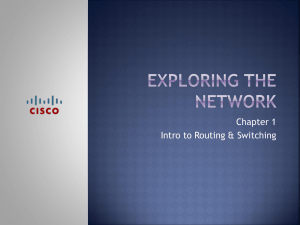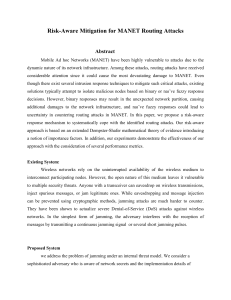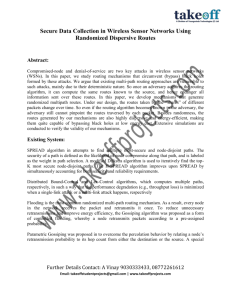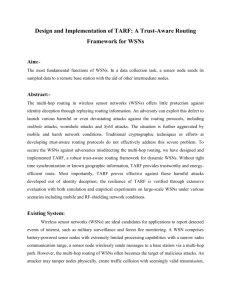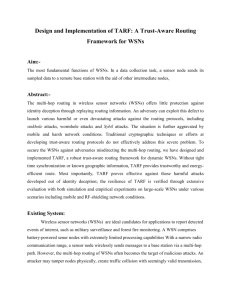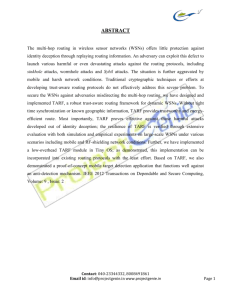- Krest Technology
advertisement
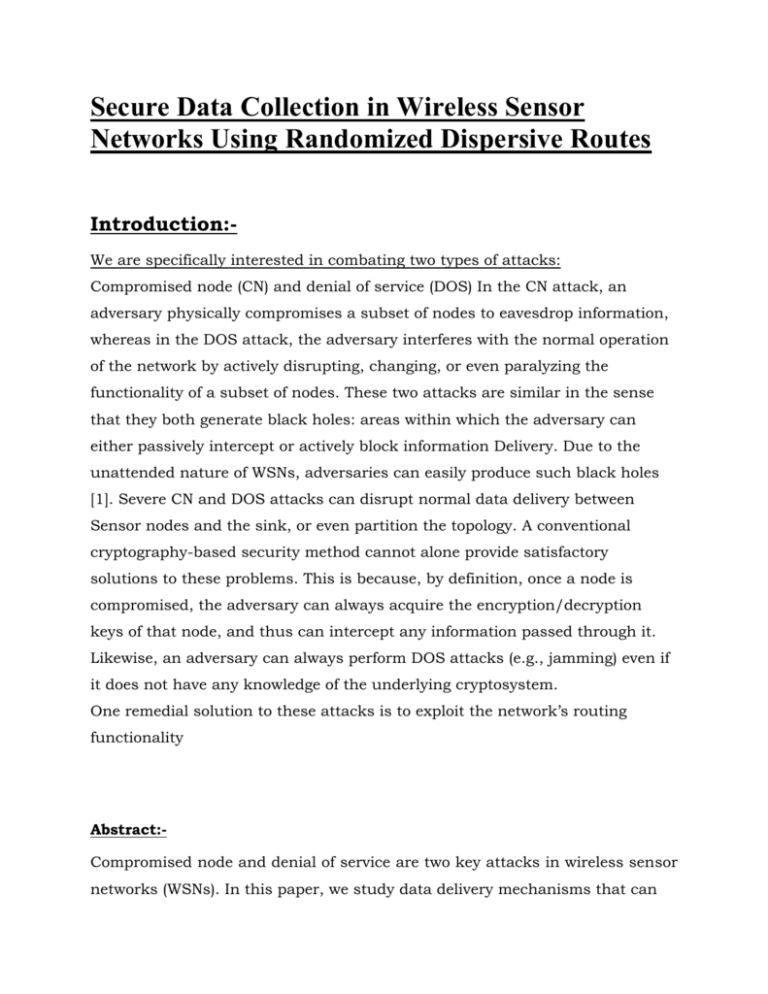
Secure Data Collection in Wireless Sensor Networks Using Randomized Dispersive Routes Introduction:We are specifically interested in combating two types of attacks: Compromised node (CN) and denial of service (DOS) In the CN attack, an adversary physically compromises a subset of nodes to eavesdrop information, whereas in the DOS attack, the adversary interferes with the normal operation of the network by actively disrupting, changing, or even paralyzing the functionality of a subset of nodes. These two attacks are similar in the sense that they both generate black holes: areas within which the adversary can either passively intercept or actively block information Delivery. Due to the unattended nature of WSNs, adversaries can easily produce such black holes [1]. Severe CN and DOS attacks can disrupt normal data delivery between Sensor nodes and the sink, or even partition the topology. A conventional cryptography-based security method cannot alone provide satisfactory solutions to these problems. This is because, by definition, once a node is compromised, the adversary can always acquire the encryption/decryption keys of that node, and thus can intercept any information passed through it. Likewise, an adversary can always perform DOS attacks (e.g., jamming) even if it does not have any knowledge of the underlying cryptosystem. One remedial solution to these attacks is to exploit the network’s routing functionality Abstract:Compromised node and denial of service are two key attacks in wireless sensor networks (WSNs). In this paper, we study data delivery mechanisms that can With high probability circumvent black holes formed by these attacks. We argue that classic Multipath routing approaches are vulnerable to such attacks, mainly due to their deterministic nature. So once the adversary acquires the routing algorithm, it can compute the same routes known to the source, hence, making all information sent over these routes vulnerable to its attacks. In this paper, we develop mechanisms that generate randomized multipath routes. Under our designs, the routes taken by the “shares” of different packets change over time. So even if the routing algorithm becomes known to the adversary, the adversary still cannot pinpoint the routes traversed by each packet. Besides randomness, the generated routes are also highly Dispersive and energy efficient, making them quite capable of circumventing black holes. We analytically investigate the security and energy performance of the proposed schemes. We also formulate an optimization problem to minimize the end-to-end energy Consumption under given security constraints. Extensive simulations are conducted to verify the validity of our mechanisms. Existing System: With the existing system while using to the Compromised Node [CN] and denial of service [DOS] transferring the data there is no security constraints are added. Even though you are transferring the data whole application will be struck. Disadvantages: Data loss Wastage time No security Proposed System: In this proposed system replaced the disadvantage in Existing System. Here we are using randomized routing algorithm as a technique for Securely sending the data through network. So there is no data Losing. Advantages: No data loss Save the time Clear path Security HARDWARE AND SOFTWARE REQUIREMENTS Software Requirements: Language : C#.NET Technologies : Microsoft.NET Framework, ASP.NET,ADO.NET IDE : Visual Studio 2008 Backend : SQL Server 2005 Operating System : Microsoft Windows XP SP2 or Later Version Hardware Requirements: Processor : Intel Pentium or more RAM : 512 MB (Minimum) Hard Disk : 40 GB

